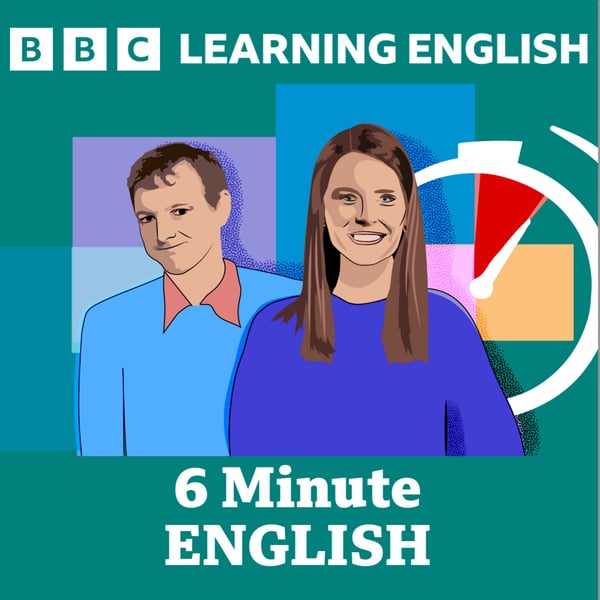Plants fighting pollution
6 Minute English
BBC
4.6 • 1.3K Ratings
🗓️ 13 July 2023
⏱️ 6 minutes
🧾️ Download transcript
Summary
Transcript
Click on a timestamp to play from that location
| 0:00.0 | Six-minute English from the BBC. |
| 0:06.8 | Hello, this is Six Minute English from BBC Learning English. I'm Neil. |
| 0:10.8 | And I'm Beth. |
| 0:11.8 | Now, imagine a field polluted by spilled oil. |
| 0:15.4 | Toxic waste has mixed into the water and chemical fumes have overtaken the air, |
| 0:21.0 | leaving animals dead and the land unsafe for humans. |
| 0:24.6 | Unfortunately, situations like this are common all over the world. |
| 0:28.8 | Cleaning up chemical pollution is dangerous and expensive, |
| 0:32.8 | and mostly involves highly technological equipment, |
| 0:36.0 | but what if there was a more natural solution? |
| 0:39.2 | Recently, scientists have been developing a new technique for cleaning pollution, |
| 0:44.2 | letting plants do the work instead. |
| 0:46.4 | Yes, plants like water hire synths have been used to clean rivers |
| 0:50.2 | by sucking up oil spilled into the water, |
| 0:53.0 | and researchers have successfully used fungi to break down plastic waste. |
| 0:58.4 | In this programme, we'll be hearing about plants that fight pollution |
| 1:02.0 | and, of course, we'll be learning some useful new vocabulary as well. |
| 1:05.8 | But first, I have a question for you, Neil. |
| 1:08.8 | One word we'll be hearing a lot in this programme is phytoremediation, |
| 1:13.8 | the technique that certain plants use to remove harmful chemicals from polluted environments. |
| 1:20.0 | But how do they do this? |
| 1:21.6 | Is it by using A, their leaves, B, their roots, or C, their seeds? |
... |
Please login to see the full transcript.
Disclaimer: The podcast and artwork embedded on this page are from BBC, and are the property of its owner and not affiliated with or endorsed by Tapesearch.
Generated transcripts are the property of BBC and are distributed freely under the Fair Use doctrine. Transcripts generated by Tapesearch are not guaranteed to be accurate.
Copyright © Tapesearch 2025.

